Meet us at

New Delhi
25-27 Feb 2026

ITB Berlin
3–5 Mar 2026

DWTC, Dubai
4 – 7 May 2026

New Delhi
25-27 Feb 2026

ITB Berlin
3–5 Mar 2026

DWTC, Dubai
4 – 7 May 2026

As the CEO of a ZentrumHub travel tech company, I have had the privilege of witnessing first-hand how Artificial Intelligence (AI) is reshaping the global travel industry. The landscape has evolved dramatically gone are the days of manual trip planning, static pricing models, and frustrating customer service delays. Today, AI is personalizing experiences, optimizing operations, and redefining how businesses interact with travelers.
As we step into 2025, AI is no longer just a buzzword; it is a fundamental pillar of travel technology. In this blog, I will take you through how AI is transforming our industry, sharing insider perspectives, real-world examples, and predictions for the future.
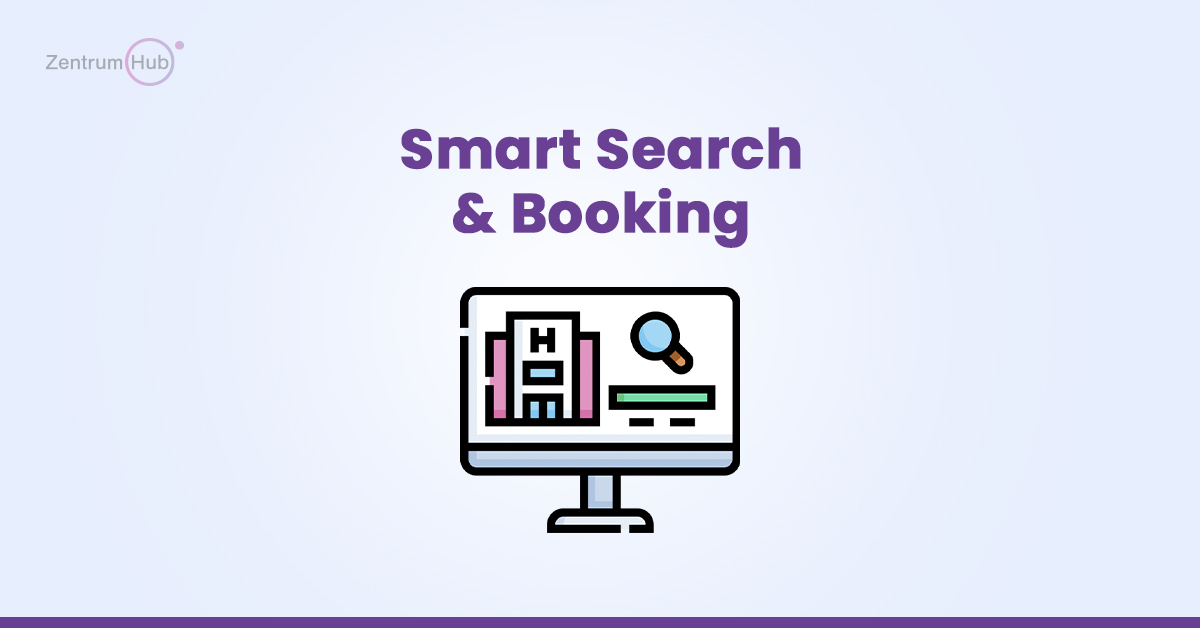
One of the biggest frustrations travelers have faced over the years is the overwhelming complexity of searching for the perfect trip. Traditional search engines provided hundreds of irrelevant results, making planning a daunting task. AI has changed this forever.
Today, AI-driven booking systems leverage Natural Language Processing (NLP) to understand traveler preferences, reducing search time and increasing conversion rates.
A great example of AI-powered efficiency is ZentrumHub, whose AI-driven booking engine processes over 50 million daily API hits, with sub-second response times. Thanks to AI, the entire integration process is 90% faster, allowing companies to roll out AI-powered booking solutions in record time.
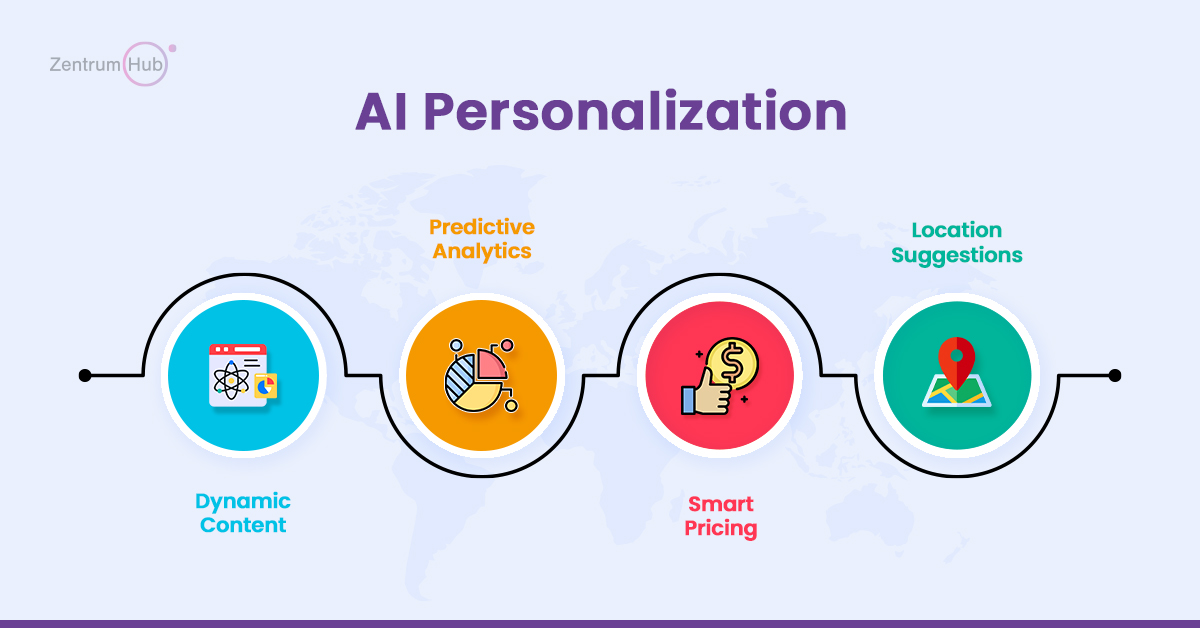
One of my biggest frustrations in travel has always been the cookie-cutter approach to recommendations. AI is fixing this problem by tailoring experiences to individual traveler preferences.
Case Study: Uniglobe Shri Sai Increases Bookings 5X with ZentrumHub
A major Online Travel Agency (OTA) introduced AI-driven personalization, leading to a 35% increase in bookings and a 28% rise in customer satisfaction.
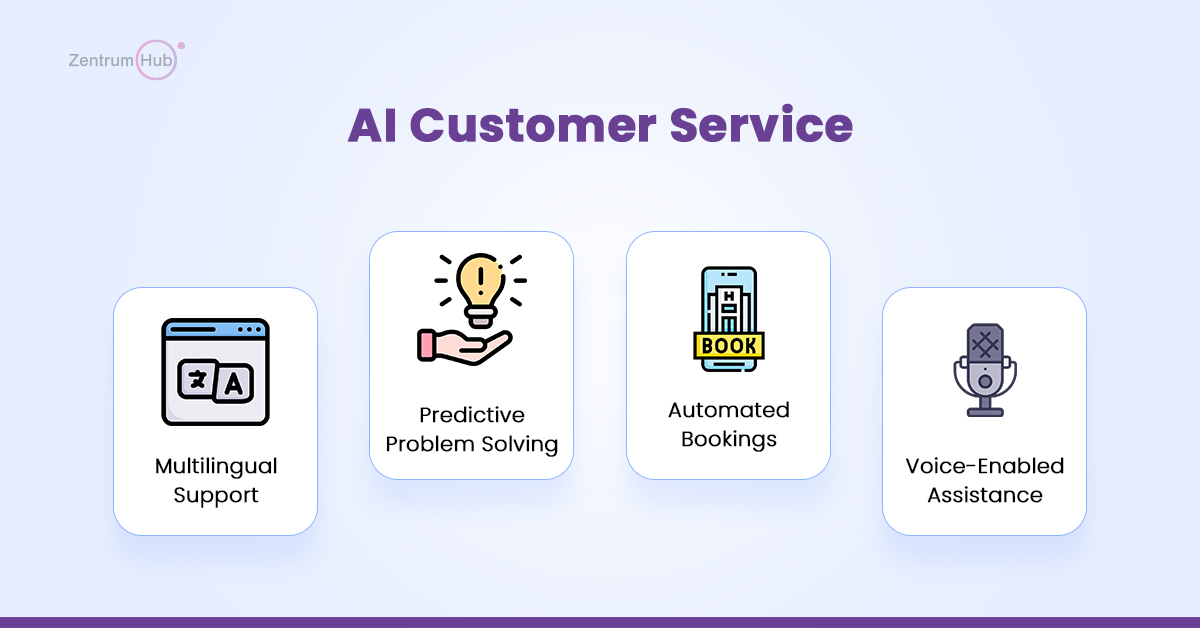
One of the biggest game-changers in travel has been AI-powered chatbots and virtual assistants. As someone who has spent countless hours stuck on hold with airlines and hotels, I know firsthand how frustrating traditional customer service can be.
Now, AI-driven chatbots and virtual agents provide instant, 24/7 support—handling everything from flight changes to refund requests.
Success Story: How Lyft Used AI to Cut Customer Resolution Time by 87%
Rideshare giant Lyft partnered with AI startup Anthropic to integrate AI-powered customer service tools. The result?
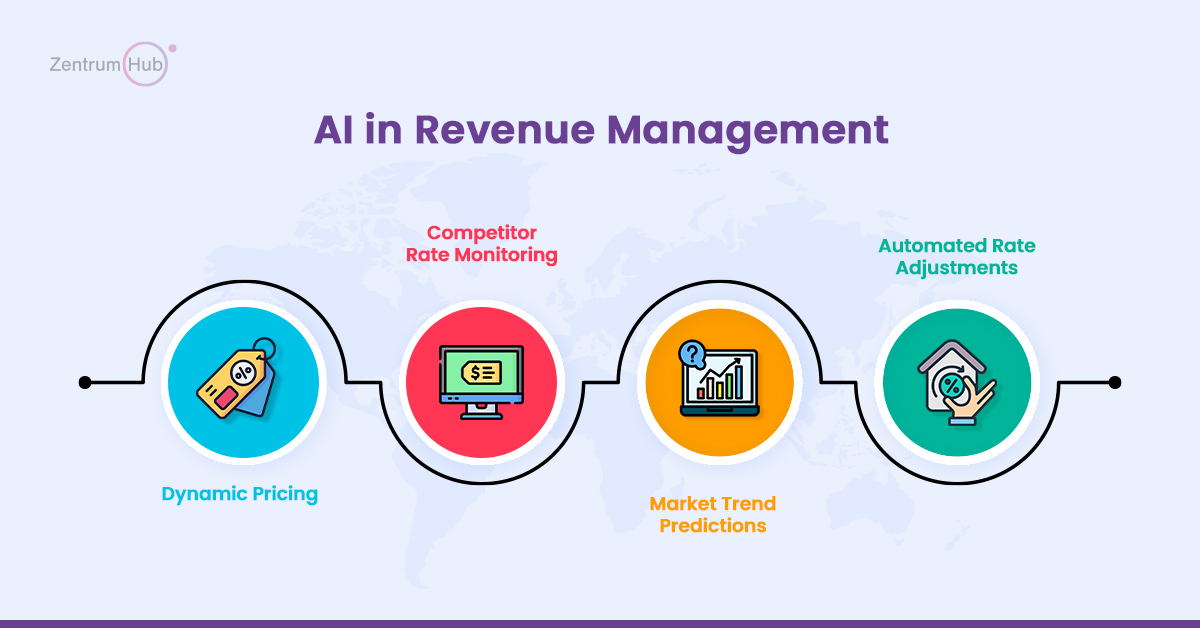
For businesses in the travel industry, pricing strategy is everything. AI-driven revenue management tools have helped companies optimize pricing in real-time, leading to record profits.
Industry Impact: AI-Driven Pricing Increases Booking Revenue by 85%
Hotels using AI-powered revenue management have seen up to 85% YoY growth in booking revenue.
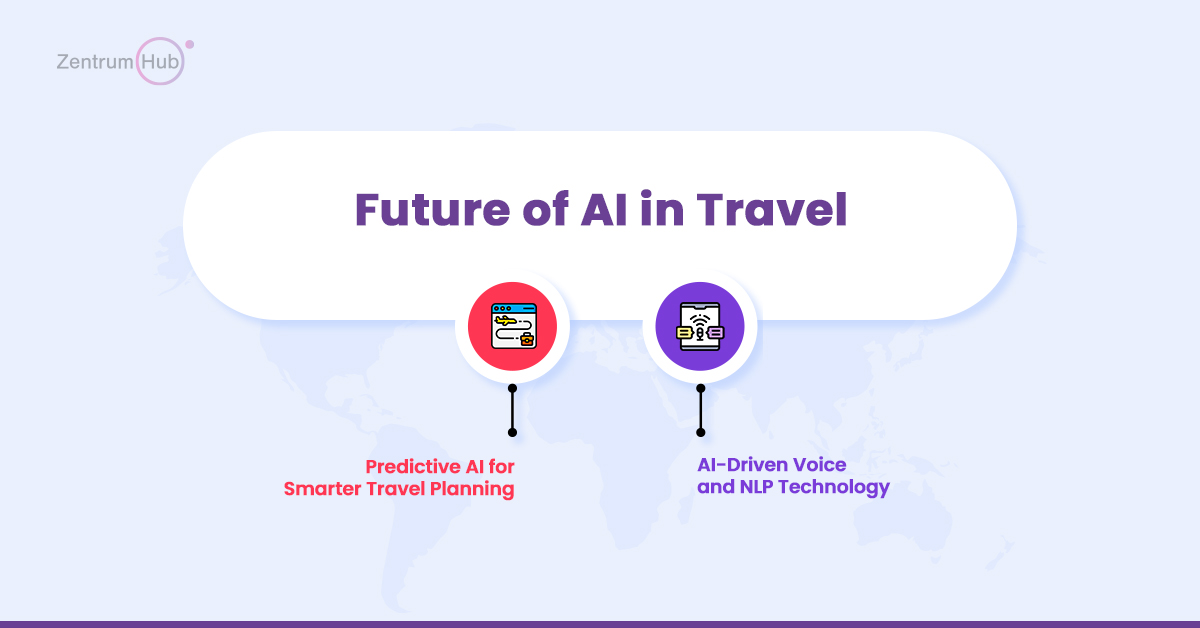
While AI has already transformed travel, we are only scratching the surface. Here’s what’s coming next:
In early 2025, I embarked on a business trip to Dubai. Normally, I would spend hours planning my itinerary, but this time, AI took over.
This experience wasn’t just convenient—it was a glimpse into the future of AI-powered travel.
As the CEO of a travel-tech company, my mission is clear: to drive innovation and ensure AI enhances every aspect of the traveler’s experience. The AI-driven travel revolution is not just about efficiency—it’s about creating seamless, intuitive, and highly personalized journeys.
For businesses, AI means:
For travelers, AI means:
